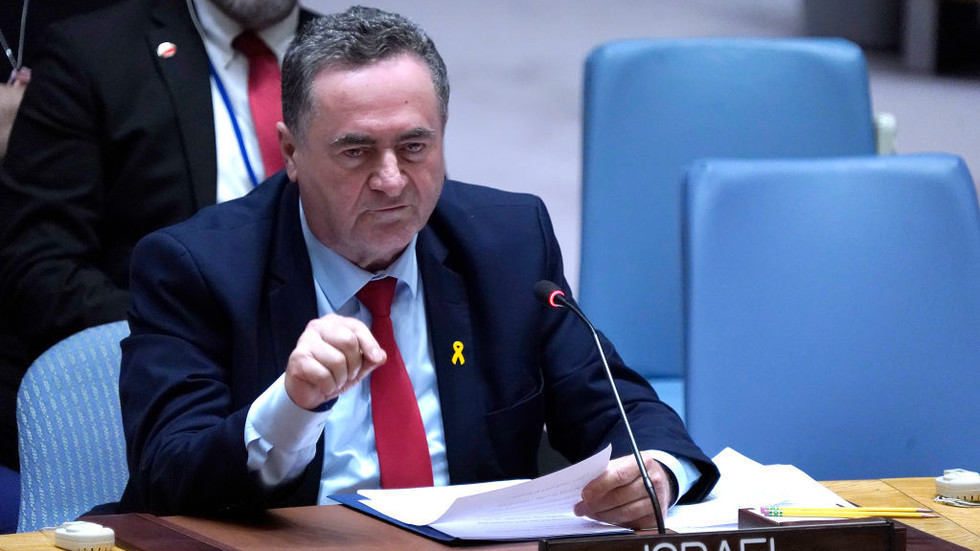The strained geopolitical landscape in the Middle East has intensified with recent statements from Israeli Defense Minister Israel Katz, who has announced plans to establish a “sterile defense zone” in southern Syria. This initiative aims to mitigate potential terrorist threats without a permanent Israeli military presence in the region. Katz’s remarks came during a visit to a naval base in Haifa, where he reflected on Israel’s recent military strategies and operations aimed at neutralizing strategic threats posed by Syria. He claimed that the destruction of the Syrian military fleet in a targeted operation marks a significant success in ongoing efforts to eliminate risks to Israeli security. Katz’s comments not only highlight Israel’s proactive measures but also underline a perceived necessity to maintain a buffer against threats, particularly following the upheaval of the Syrian government.
Israel has consistently engaged in military operations across Syria, particularly after armed opposition groups, such as Hayat Tahrir al-Sham (HTS), launched a sudden offensive on government forces. This offensive led to substantial shifts in power dynamics within Syria, resulting in the displacement and exile of Syrian President Bashar al-Assad. The Israeli military has increased its operations in the region, supposedly to prevent arms left by the Syrian regime in demilitarized zones from being seized by extremist factions. Reports indicate that Israeli airstrikes in various locations throughout Syria, exceeding 300 since a recent Sunday, reflect the nation’s commitment to its strategic military objectives. Israeli Prime Minister Benjamin Netanyahu bolstered this notion by emphasizing that Israel does not intend to meddle in Syria’s domestic issues, yet it will take necessary measures to safeguard its own security.
The military escalation has roots in the ongoing civil conflict in Syria, which has created an opportunity for various militant groups to gain footholds in the void left by the weakening Assad regime. Israel’s decision to take control of parts of the demilitarized zone aligns with its longstanding policy of counteracting threats from neighboring Syria, especially those perceived as supportive of Iranian influence in the region. The area in question, established under a 1974 disengagement agreement, lies adjacent to the Israeli-occupied Golan Heights, another significant strategic location for Israel. Katz’s assurance that this incursion will not result in a permanent military presence echoes previous Israeli assertions of a temporary security posture aimed at containing terrorism.
Though Israel’s actions may appear justified under the guise of self-defense, they have raised questions regarding international law and the implications for Syria’s sovereignty. Notably, the United Nations has expressed concerns regarding the violation of the disengagement agreement through Israel’s military incursions. Countries like the United States have offered diplomatic backing to Israel’s operations, framing them as defensive maneuvers necessary for national security. Such international support reflects a complex web of alliances and antagonisms at play, underscoring how regional dynamics influence global politics as well. Despite these alliances, the validity of Israel’s military operations remains contested within the framework of international law.
The desire for control over the Golan Heights has been a central theme in Israeli policy since the territory was captured during the 1967 Six-Day War. Netanyahu has made it clear that Israel intends to maintain dominion over this strategic area “forever,” stating it is an “inseparable part” of the nation. Given this ambition, securing the adjacent areas from any form of hostile activity becomes critical. The establishment of a defense zone could be seen as a preemptive measure to ensure continued Israeli security in the face of evolving threats from newly empowered or extremist factions that might arise as Syrian stability remains precarious.
As tensions continue to mount between various factions within Syria and beyond, the region remains a focal point for international observers. Israel’s efforts to establish a “sterile defense zone” while avoiding permanent military entrenchment reflect a complex balancing act between security imperatives and the need to navigate delicate international relationships. Observers will likely follow how this initiative unfolds in light of ongoing airstrikes and the evolving situation on the ground in Syria. As the geopolitical landscape shifts, Israel’s overarching aim remains clear: to safeguard its national interests while contending with the multifaceted challenges posed by both domestic instability in Syria and the broader regional security matrix.

